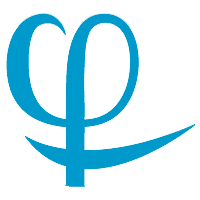Creating Communities of Practice
Virtual and face-to-face Communities of Inquiry or Communities of Practice (COPs) can provide an opportunity for co-learning, collective synthesis and action planning on women’s health which can lead to gender-transformative improvements in the policy and service systems.
Key aspects of communities of inquiry are:
- Members participate as engaged professionals and paraprofessionals, not as representatives of agencies or governments;
- Membership is voluntary;
- These communities of inquiry are centered around learning together about complex issues, through the sharing of multiple forms of evidence (research, practice wisdom, policy wisdom, experiential wisdom, and wisdom from traditional indigenous ways of knowing);
- They pay close attention to relationships, and are facilitated through a dialogic (17-20) and appreciative (21-22) approach;
- They are geared to stimulating change: individual, collective, organizational and structural; and
- They engage in/are linked to other forms of building awareness and stimulating action.
While every community is different, most communities of practice have several key features that allow them to form and develop, either online or face-to-face. Click here to view a practical 8-page guide on cultivating a community of practice developed by the National Learning Infrastructure Initiative at EDUCAUSE.
A Community of Practice in Action
An example of coalitional consciousness building is being employed by the Repairing the Holes in the Net research project (23) which uses communities of practice (CoPs) as primary tools for stimulating gender-transformative improvements in the policy and service systems designed to address key facets of the determinants underlying women’s homelessness and its attendant mental and physical health issues in northern Canada.
Diverse approaches to addressing homelessness. In this project, CoPs in the three northern Canadian territories bring researchers, policy makers and frontline service providers together around a shared commitment to learn their way into better outcomes for homeless women.This approach draws participants into an iterative cycle of reflection, learning, planning and action. Learning occurs as the knowledge and experience brought by those present is shared, literature and case studies from around the world are reviewed and new knowledge generated by interviews conducted with service users and providers as part of the research.
Learning to Planning to Action. CoP participants regularly reflect on the implications of what is learned for improving individual and collective practice as they discuss and formulate plans for next steps for shifting policy and service delivery practice. As dialogue and planning is transformed into some form of action, undertaken collaboratively or by individuals within the context of their own agencies, intervention theories are tested and a new cycle of reflection, learning and planning begins.
